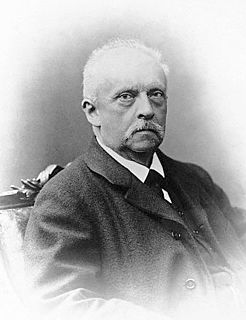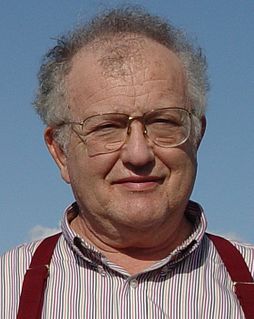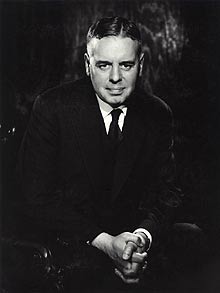
Brian John Rogers is a psychologist and retired academic. He was Professor of Experimental Psychology at the University of Oxford between 1996 and 2012.

Brian John Rogers is a psychologist and retired academic. He was Professor of Experimental Psychology at the University of Oxford between 1996 and 2012.
Rogers attended the University of Bristol, graduating with BSc in psychology in 1969; he then completed a PhD there in 1976. In 1973, he was appointed to a lectureship in psychology at the University of St Andrews, where he remained until he was elected a fellow and tutor at Lady Margaret Hall, Oxford, in 1984. In 1996, he was awarded the title of Professor of Experimental Psychology by the University of Oxford. He resigned his fellowship in 1998 to raise his young son, but retained his university position. He was appointed a stipendiary lecturer at Pembroke College, Oxford in 2001 and in 2003 was elected a fellow and tutor at the college. He served as Junior Proctor in the university for the 2011–12 year and then retired in 2012. [1]
Rogers's research focuses on human visual perception. His publications include:

Hermann Ludwig Ferdinand von Helmholtz was a German physicist and physician who made significant contributions in several scientific fields. The largest German association of research institutions, the Helmholtz Association, is named after him.

Carl Stumpf was a German philosopher and psychologist. He studied with Franz Brentano at the University of Würzburg before receiving his doctorate at the University of Göttingen in 1868. He also tutored the modernist literature writer Robert Musil at the University of Berlin, and worked with Hermann Lotze, who is famous for his work in perception, at Göttingen. Stumpf is known for his work on the psychology of tones. He had an important influence on his students Wolfgang Köhler and Kurt Koffka who were instrumental in the founding of Gestalt psychology as well as Kurt Lewin, who was also a part of the Gestalt group and was key in the establishment of experimental social psychology in America. Stumpf is considered one of the pioneers of comparative musicology and ethnomusicology, as documented in his study of the origins of human musical cognition The Origins of Music (1911). He held positions in the philosophy departments at the Universities of Göttingen, Würzburg, Prague, Munich and Halle, before obtaining a professorship at the University of Berlin.

Richard Langton Gregory was a British psychologist and Professor of Neuropsychology at the University of Bristol.
Sir Hrothgar John Habakkuk was a British economic historian.
Philip N. Johnson-Laird was a professor at Princeton University's Department of Psychology, as well as the author of several notable books on human cognition and the psychology of reasoning.
Hugh Christopher Longuet-Higgins was both a theoretical chemist and a cognitive scientist.
Piers Gerald Mackesy, D.Phil. and D.Litt. (Oxon.), FBA was a British military historian who taught at the University of Oxford.
Henry Maria Robert Egmont Mayr-Harting is a British medieval ecclesiastical historian. From 1997 to 2003, he was Regius Professor of Ecclesiastical History at the University of Oxford and a lay canon of Christ Church, Oxford.
Nicholas James Richardson is a British Classical scholar and formerly Warden of Greyfriars, Oxford, from 2004 until 2007.
Oliver John Braddick, is a British developmental psychologist who is involved in research on infant visual perception. He frequently collaborates with his wife Janette Atkinson.
Malcolm Reginald Godden, FBA is a British academic who held the chair of the Rawlinson and Bosworth Professor of Anglo-Saxon at the University of Oxford from 1991 until 2013.

Albert Stanley "Al" Bregman is a Canadian professor and researcher in experimental psychology, cognitive science, and Gestalt psychology, primarily in the perceptual organization of sound.
Sir Richard Rustom Kharsedji Sorabji, is a British historian of ancient Western philosophy, and Professor of Philosophy Emeritus at King's College London. He has written his 'Intellectual Autobiography' in his Festschrift: R. Salles ed., Metaphysics, Soul and Ethics in Ancient Thought, 1–36. He is the nephew of Cornelia Sorabji, the first woman to practice law in Britain and India.
Nicholas John Seymour Mackintosh, was a British experimental psychologist and author, specialising in intelligence, psychometrics and animal learning.
James Russell Raven LittD FBA FSA is a British historian and Chairman of the English-Speaking Union of the Commonwealth.

Ian Porteus Howard was a Canadian psychologist and researcher in visual perception at York University in Toronto.

Charles Kingsley Barrett was a British biblical scholar and Methodist minister. He served as Professor of Divinity at the University of Durham and wrote commentaries on the Acts of the Apostles, John, Romans, 1 Corinthians and 2 Corinthians.
Andrew Philip McDowell Orchard, FRSC, FBA is a British academic in Old English, Norse and Celtic literature. He is Rawlinson and Bosworth Professor of Anglo-Saxon at the University of Oxford and a fellow of Pembroke College, Oxford. He was previously Provost of Trinity College, Toronto, from 2007 to 2013.
Brian Westerdale Downs, KNO was an English literary scholar and linguist. He served as Master of Christ's College, Cambridge from 1950 to 1963 and Vice-Chancellor of the University of Cambridge from 1955 to 1957. From 1950 to 1960, he was the Professor of Scandinavian Studies at Cambridge.
Bryan Ronald Webber, FRS, FInstP is a British physicist and academic. He was a Fellow of Emmanuel College, Cambridge from 1973 to 2010, and Professor of Theoretical Physics at the University of Cambridge from 1999 to 2010. He has been awarded the Dirac Medal by the Institute of Physics and the Sakurai Prize by the American Physical Society.
| | This biography of a British psychologist is a stub. You can help Wikipedia by expanding it. |